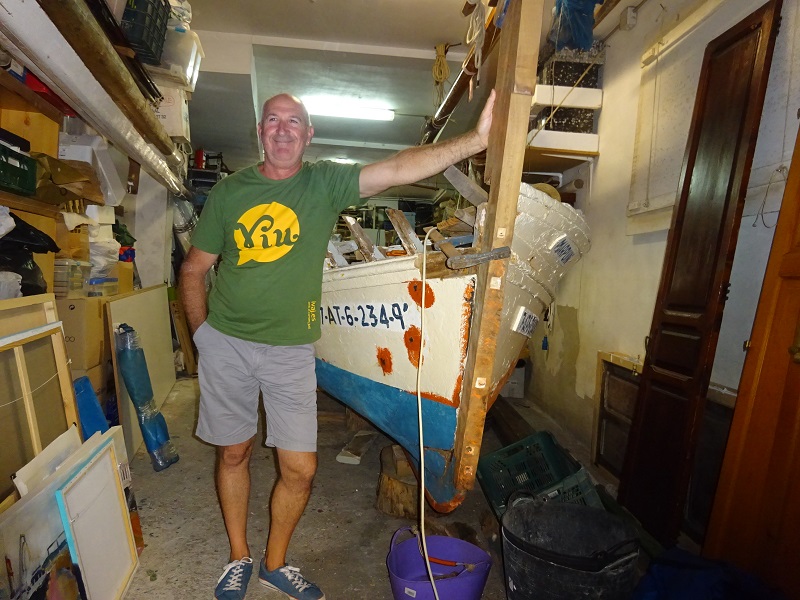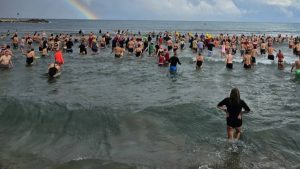Amadeu Ros, the atypical sailor, retires after 37 years at sea
He retires with a backpack full of experiences and memories and will dedicate more time to restoring a traditional boat
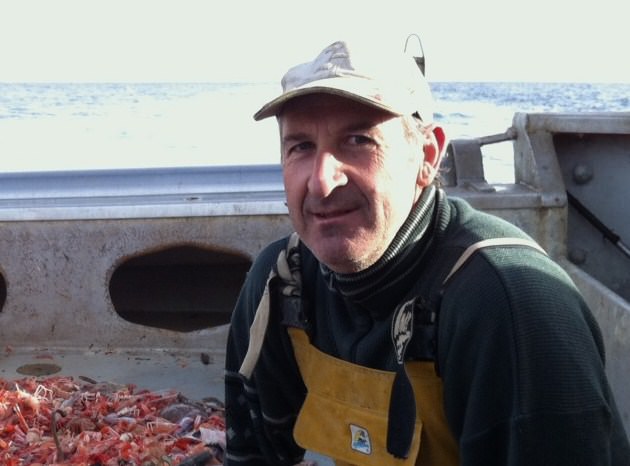
Thursday 19th August 2021 – CARLOS LÓPEZ with Mike Smith
Amadeu Ros is the skipper of Cap Prim II, a fishing boat based in the port of Xàbia. After 37 years at sea, he has decided to retire with a backpack loaded with experiences and memories highlighting the valuable work of fishermen and the importance of the industry on the local economy.
XAD spoke with Amadeu Ros next to the garage when he keeps a traditional boat that he has been restoring and to which, after retirement, he will dedicate more of his time so that its importance can be highlighted through the Traditional Boat Association. He will also continue to help his crew, take care of the daily paperwork for Cap Prim II, which will now be captained by his brother Batit who will leave a crew made up of Marc (his son), Áqueda and Vicent Campaner.
Amadeu has captained two boats. The first, Terol Tercero, he purchased second-hand with the brother in 1985 for 20 million pesetas (120,000 euros). They renamed it Cap Prim since it was a short name, for its sound, and for being the end of Portitxol, an area which he has described as hub of Xàbia and, by extension, of the Valencian lands. His second boat, Cap Prim II, was bought in 2002 for 1.2 million euros.
Ros was part of the 55 campaign of the Navy training ship Juan Sebastián El Cano
Seafaring blood runs through the veins of the family of Amadeu Ros. His father was a boat carpenter and worked with his uncle Bartolomé Ros in a workshop in the port of Xàbia where they repaired boats and traditional ‘llauts’. Amadeu joined the workshop in 1981, having established that academic studies were not his thing.
Shortly afterwards, he was called up to serve in the Spanish Navy, due to being a person registered as living by the sea and he was posted to the naval base in Cartagena where he was able to start one of his greatest experiences on the sea on board the training ship Juan Sebastián El Cano. Amadeu had knowledge of boat maintenance and was integrated into the ship’s non-military personnel, one of the participants in campaign 55 of the ship, which was built in 1930 and had a crew of more than 300.
He recalls how the ship was “white on the outside and black on the inside, black in every way”. They slept in bunk beds and he remembers how welcoming people were in the North American port where they stopped, how they invited them into their homes to eat and then took them back to the port. And he thanked his grandfather Batiste ‘Sabata’ for teaching him some English so that he could expressed himself in those ports. He spent 17 months with El Cano and returned to Xàbia in 1985.
He realised that he could no longer make a living from the workshop and since he and his brother had the “poison of the sea in our veins”, they took the logical step on buying their first boat, the drag trawler of Tío Vicent de Campaner. Soon after, they purchased Terol Tercero and renamed her Cap Prim; in 2003 they bought Cap Prim II, which was built in Benicarló.
He started paying Social Security contributions as a worker on the sea and continued to do so right up until present day. In the summer of 2021, he received a letter from the Navy’s Social Institute which explained that he could retire if he wanted to. He considered the offer with his wife, Fani, and they made the decision. It was the right moment.
With almost 37 years at sea, Amadeu Ros told XAD some of the many stories he has gathered. A submarine, a cabin of an airplane and a projectile from the war, the remains of sharks and Greenpeace and also, between 2007 and 2012, “we were a penny from leaving the sea” due to the serious crisis that affected the fishing sector.
The Projectile: It appeared when picking up the net. A projectile. “We called the Guardia Civil who took it away.”
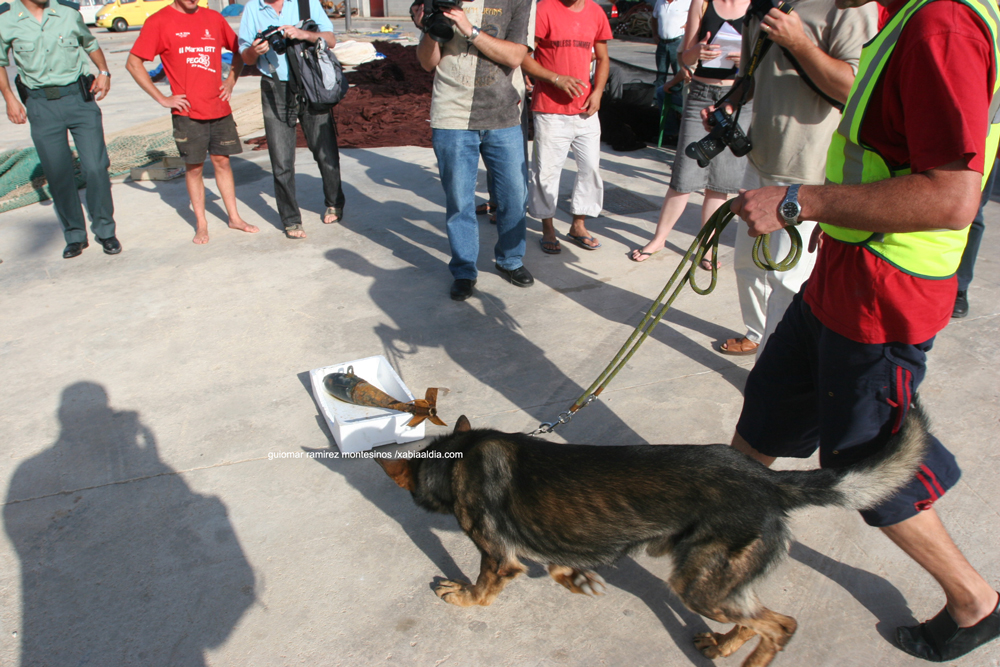
The Submarine: “It was in ’89. We were trawling in the Es Vedrà fishing grounds (one of the headlands of the island of Ibiza), when suddenly we noticed that the ship was stopping and we decided to switch off the engine”. After a short time, the boat begins to reverse “at a speed of about 5 knots.” They stayed like that for half an hour … until he found out what was happening. The Galerna submarine had snagged one of its cables, so they broke it and each vessel returned to its original course.
The War Plane: “People knew that there were remains of a plane (in the channel between Xàbia and Ibiza). But in the 90’s, electronics were not very reliable. Something got hooked on the nets, cracked them. It must have been one of the engines ”. Years later, another ship, the Sol de Jávea, extracted the cabin of that same plane, brought it on board and unloaded it at the port.
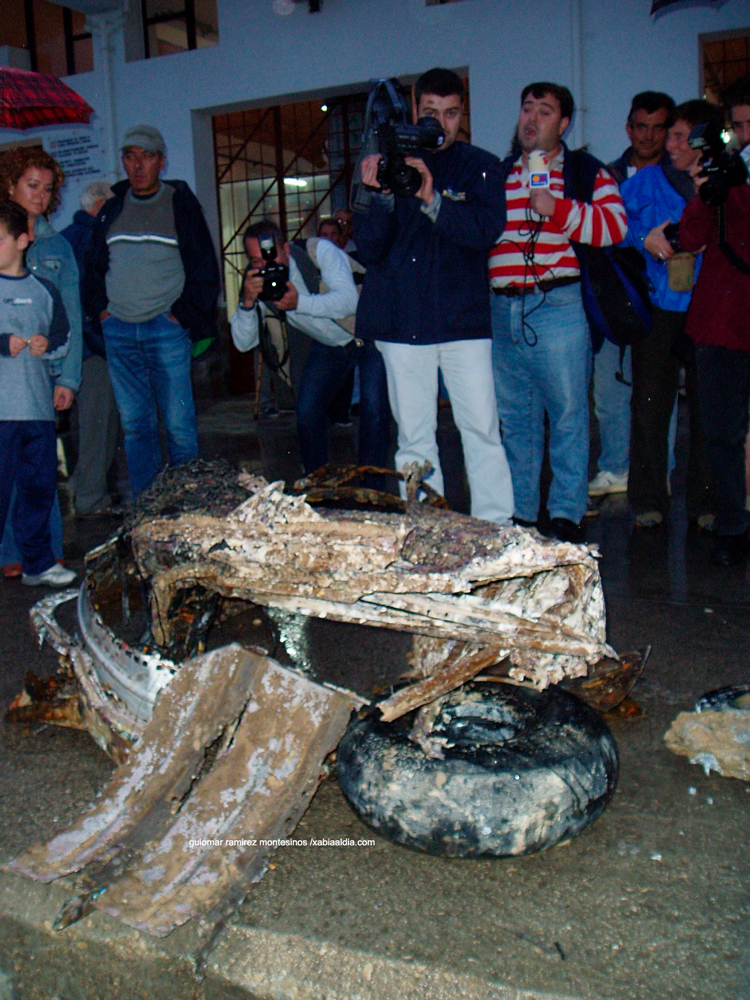
Four days tied up in Sant Antoni (Ibiza): It is the worst storm in memory. They were moored for four days in the port of Sant Antoni del Portmany (Ibiza). “The Llebeig (south-west) started and then turned to Mestral (northwest), we were tied up by the‘ mestralada ’all weekend. It was, he acknowledged, “the only time we couldn’t return to port (Xàbia) after fishing” on Friday.
Sharks, alive and dead: The crew of Cap Prim directed by Amadeu Ros has returned sharks and other species that have been trapped in their nets to the sea. They have also extracted large skeletons of these species.
Greenpeace, drift nets: At another point in its maritime history, Amadeu Ros participated aboard the Marraixera Rosselló Blanquer vessel in a campaign promoted by Greenpeace to eliminate drift fishing nets. This type of net forms a kind of barrier 30 meters high and several kilometers long and “everything that passes through it becomes entangled”, be it “turtles, whales, dolphins …” but fundamentally it was used to “capture swordfish”. This type of fishing was banned in Spain, but ships with the Italian or Moroccan flag continued to use it in continental waters of our country. This fact earned him the October 9 Vila de Xàbia award for civic values.
In another part of the interview, XAD asked Amadeu about the different regulations that the European Union has implemented for fishing. He assures that Spain is the advantageous student “Europe says something and Spain is the first to do it.”
According to him, “people normally think that the sailors are going to destroy”, however, he believes that this is a belief that has been promoted and disseminated by two large NGO’s Oceana and also Greenpeace. But “it is not like that,” he remarked.
By law, he assured, they can spend 11 hours at sea “and of those there are six or seven of maximum trawling.” He explained that his boat has been part of a pilot project of the Ministry of Agriculture for the introduction of new, less aggressive nets with the marine environment.
Another aspect, little known of the day of the skipper of a fishing boat, is the obligation to fill in the electronic diary that requires them to send five messages a day to the Ministry of Agriculture and Fisheries: 1) Before leaving the port; 2) Capture; 3) End of capture; 4) Quantity arriving at port; and finally 5) Declaration of species and kilos, which must coincide with what is billed to the POSIT. “This is in addition to what the skipper does, sailing, fishing, taking care of the responsibility of the boat and one more hour of paperwork.”
After these years, Amadeu Ros assures that he is an “atypical sailor” and declares himself a “nationalist, independentist, communist and feminist”, in fact his boat is one of the few that has a woman among the crew.
Another of the projects that Ros and his crew have started has been PescaTurisme, a commitment to bring the world of fishing closer to all citizens in general and that allows anyone to embark on the boat and get to know this profession so deeply rooted in Xàbia and in the whole of the Mediterranean.
From now on, Amadeu will dedicate himself to the restoration of the Llauts and to promoting the work of the traditional boat association that defends and protects them.
